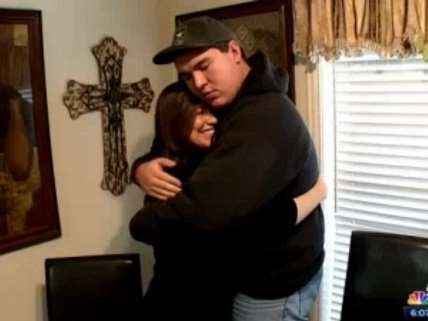Autistic Student Who Kissed Wrong Person Expelled for Sexual Assault

An autistic 20-year-old who attends special-needs classes at Navarro College in Waxahachie, Texas, was recently kicked out for sexually assaulting another student. What did he do, specifically? He hugged a female student and kissed her on the top of the head, having mistaken her for someone else.
Brian Ferguson is moderately impaired by his autism but can speak well enough and enjoys attending classes. He was walking down a hallway when he encountered a woman he wrongly thought he knew. According to NBCDFW.com:
The woman, who has not been identified and could not be reached for comment, turned out to be a stranger.
"He gave her a hug and kissed her on the top of her head," [said Staci Martin, Ferguson's mother]. "He's 6'5", so when he gives hugs, he'll give you a big hug and kiss you right here on the top of your scalp."
The school called it an assault, she said.
"And then they labeled it 'sexual assault' because of the kissing," Martin said. "They said a kiss is considered an assault."
District administrators ultimately decided to let Ferguson return to classes—but at a high school, not his college.
No doubt the kiss was inappropriate, although one would expect administrators to exercise some discretion, considering both his condition and the ultimate harmlessness of the gesture. As College Insurrection noted, Ferguson's actions aren't really any worse than the vice president's creepy kissing of a little girl last week.
Which is not to say that there was nothing wrong with what he did. He is a big fellow; the female student might have been legitimately frightened by him. If it happened repeatedly—if Ferguson was regularly giving hugs to random strangers—I might think that administrators would be justified taking some action.
Actual instances of sexual assault should be dealt with firmly, of course. But there is a danger in conflating Ferguson's actions with real violence. Unfortunately, with the affirmative consent movement on the rise, more and more students will soon be grappling with a definition of sexual assault that no longer squares with real life.
Hat tip: Hans Bader


Show Comments (90)